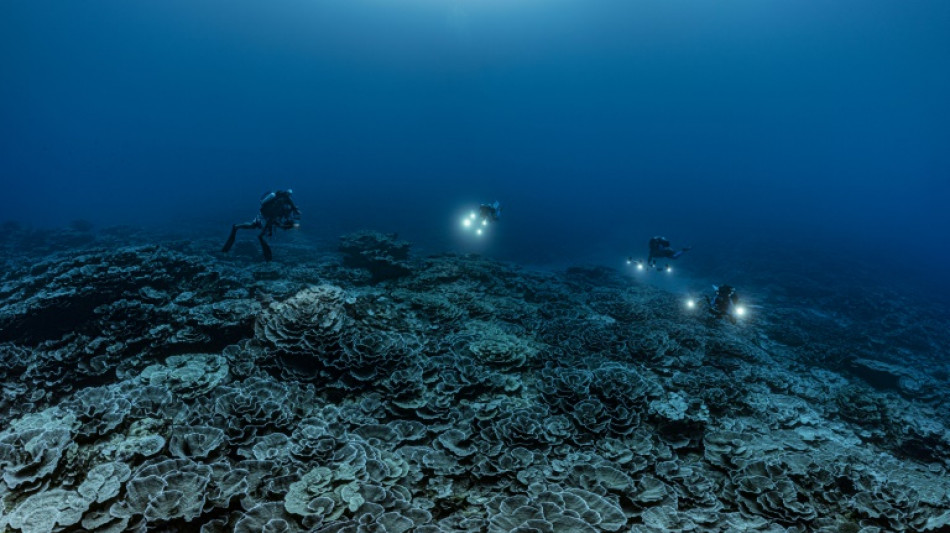
-
 Vonn to provide injury update as Milan-Cortina Olympics near
Vonn to provide injury update as Milan-Cortina Olympics near
-
France summons Musk for 'voluntary interview', raids X offices

-
 Stocks mostly climb as gold recovers
Stocks mostly climb as gold recovers
-
US judge to hear request for 'immediate takedown' of Epstein files

-
 Russia resumes large-scale strikes on Ukraine in glacial temperatures
Russia resumes large-scale strikes on Ukraine in glacial temperatures
-
Fit-again France captain Dupont partners Jalibert against Ireland

-
 French summons Musk for 'voluntary interview' as authorities raid X offices
French summons Musk for 'voluntary interview' as authorities raid X offices
-
IOC chief Coventry calls for focus on sport, not politics

-
 McNeil's partner hits out at 'brutal' football industry after Palace move collapses
McNeil's partner hits out at 'brutal' football industry after Palace move collapses
-
Proud moment as Prendergast brothers picked to start for Ireland

-
 Germany has highest share of older workers in EU
Germany has highest share of older workers in EU
-
Teen swims four hours to save family lost at sea off Australia

-
 Ethiopia denies Trump claim mega-dam was financed by US
Ethiopia denies Trump claim mega-dam was financed by US
-
Norway crown princess's son pleads not guilty to rapes as trial opens

-
 Russia resumes strikes on freezing Ukrainian capital ahead of talks
Russia resumes strikes on freezing Ukrainian capital ahead of talks
-
Malaysian court acquits French man on drug charges

-
 Switch 2 sales boost Nintendo profits, but chip shortage looms
Switch 2 sales boost Nintendo profits, but chip shortage looms
-
China to ban hidden car door handles, setting new safety standards

-
 Switch 2 sales boost Nintendo results but chip shortage looms
Switch 2 sales boost Nintendo results but chip shortage looms
-
From rations to G20's doorstep: Poland savours economic 'miracle'

-
 Russia resumes strikes on freezing Ukrainian capital
Russia resumes strikes on freezing Ukrainian capital
-
'Way too far': Latino Trump voters shocked by Minneapolis crackdown

-
 England and Brook seek redemption at T20 World Cup
England and Brook seek redemption at T20 World Cup
-
Coach Gambhir under pressure as India aim for back-to-back T20 triumphs

-
 'Helmets off': NFL stars open up as Super Bowl circus begins
'Helmets off': NFL stars open up as Super Bowl circus begins
-
Japan coach Jones says 'fair' World Cup schedule helps small teams

-
 Equities and precious metals rebound after Asia-wide rout
Equities and precious metals rebound after Asia-wide rout
-
Do not write Ireland off as a rugby force, says ex-prop Ross

-
 Winter Olympics 2026: AFP guide to Alpine Skiing races
Winter Olympics 2026: AFP guide to Alpine Skiing races
-
Winter Olympics to showcase Italian venues and global tensions

-
 Buoyant England eager to end Franco-Irish grip on Six Nations
Buoyant England eager to end Franco-Irish grip on Six Nations
-
China to ban hidden car door handles in industry shift

-
 Sengun leads Rockets past Pacers, Ball leads Hornets fightback
Sengun leads Rockets past Pacers, Ball leads Hornets fightback
-
Waymo raises $16 bn to fuel global robotaxi expansion

-
 Netflix to livestream BTS comeback concert in K-pop mega event
Netflix to livestream BTS comeback concert in K-pop mega event
-
Rural India powers global AI models

-
 US House to vote Tuesday to end shutdown
US House to vote Tuesday to end shutdown
-
Equities, metals, oil rebound after Asia-wide rout

-
 Bencic, Svitolina make history as mothers inside tennis top 10
Bencic, Svitolina make history as mothers inside tennis top 10
-
Italy's spread-out Olympics face transport challenge

-
 Son of Norway crown princess stands trial for multiple rapes
Son of Norway crown princess stands trial for multiple rapes
-
Side hustle: Part-time refs take charge of Super Bowl

-
 Paying for a selfie: Rome starts charging for Trevi Fountain
Paying for a selfie: Rome starts charging for Trevi Fountain
-
Faced with Trump, Pope Leo opts for indirect diplomacy

-
 NFL chief expects Bad Bunny to unite Super Bowl audience
NFL chief expects Bad Bunny to unite Super Bowl audience
-
Australia's Hazlewood to miss start of T20 World Cup

-
 Bill, Hillary Clinton to testify in US House Epstein probe
Bill, Hillary Clinton to testify in US House Epstein probe
-
Cuba confirms 'communications' with US, but says no negotiations yet

-
 Iran orders talks with US as Trump warns of 'bad things' if no deal reached
Iran orders talks with US as Trump warns of 'bad things' if no deal reached
-
From 'watch his ass' to White House talks for Trump and Petro


'Remarkable' giant coral reef found off Tahiti
Scientists have discovered a vast reef of "pristine" rose-shaped corals apparently unharmed by climate change in deep water off the coast of Tahiti, UNESCO announced Thursday.
Mapping approximately three kilometres (two miles) long and up to 65 metres (213 feet) wide, UNESCO said it was "one of the most extensive healthy coral reefs on record".
The UN heritage agency said it was "highly unusual" to find healthy coral in cooler waters between 30 and 65 metres deep and that it could suggest that there are more reefs in the ocean depth that are safer from the impacts of warming waters.
The discovery was made in November by divers with special equipment that allowed them to go deeper and spend 200 hours at the reef.
"It was magical to witness giant, beautiful rose corals which stretch for as far as the eye can see. It was like a work of art," said Alexis Rosenfeld, a French photographer and founder of the UNESCO partner 1 Ocean campaign.
The giant rose-shaped corals are each up to two metres in diameter.
"To date, we know the surface of the moon better than the deep ocean," said UNESCO Director-General Audrey Azoulay, adding that only 20 percent of the world's seabed has been mapped.
- 'Inspire' -
"The discovery of this reef in such a pristine condition is good news and can inspire future conservation," said Laetitia Hedouin, a marine biologist at French research agency (CNRS).
"We think that deeper reefs may be better protected from global warming."
Most of the world's known reefs have been found at depths of up to 25 metres and the UN heritage body said the Tahiti reef could suggest there are more areas of healthy coral in the ocean's unmapped "twilight zone".
"This remarkable discovery in Tahiti demonstrates the incredible work of scientists who, with the support of UNESCO, further the extent of our knowledge about what lies beneath," said Azoulay.
French Polynesia suffered a significant bleaching event back in 2019, but this newly discovered reef does not appear to have been significantly affected.
"These corals do not show signs of stress or disease," Hedouin told AFP.
Bleaching occurs when healthy corals become stressed by spikes in ocean temperatures, causing them to expel algae living in their tissues, leaving graveyards of bleached skeletons where vibrant ecosystems once thrived.
- Warming threat -
Starfish can also ravage corals by eating them.
Temperature sensors have been placed in the area as part of a programme to analyse why the corals appear to be unaffected by climate change and to monitor its population dynamics.
Coral reefs cover only a tiny fraction of the ocean floor, but they are home to at least a quarter of all marine animals and plants.
In October, the Global Coral Reef Monitoring Network said dynamite fishing, pollution, but mostly global warming had wiped out 14 percent of the world's coral reefs between 2009 to 2018.
Hardest hit were corals in South Asia and the Pacific, around the Arabian Peninsula, and off the coast of Australia.
Oceans absorb more than 90 percent of the excess heat from greenhouse gas emissions, shielding land surfaces but generating huge, long-lasting marine heatwaves that are pushing many species of corals past their limits of tolerance.
A single bleaching event in 1998 caused by warming waters wiped out eight percent of all corals.
M.Qasim--SF-PST




